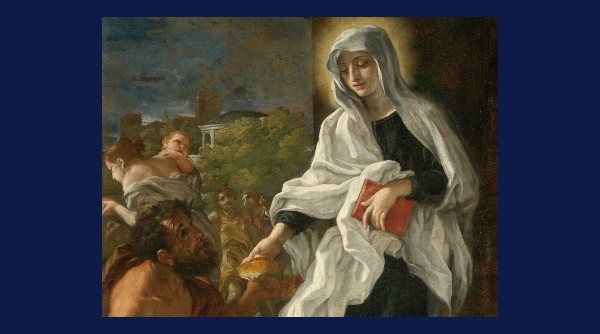Susie Orbach is a well-known London psychotherapist who was Princess Diana’s emotional counsellor back in the 1980s. She has recently been speaking about the wave of ‘social depression’ that has arisen from prolonged lockdown. The severe restrictions on our everyday lives make us ‘solace-deprived’ and emotionally ‘squeezed-out’. Social isolation, she notes, is a form of prison punishment, and a weapon of war. Even the wearing of masks deprives us of a form of communication that is embedded in human nature – face-to-face contact with its’ range of expressions. We are emotionally ‘abbreviated’.
It’s the little things, she noted, that affect our sense of humanity – and our hope. It’s the casual exchanges, the meetings over coffee, the jovial office banter, the friendly chat on a bus – the lack of such encounters is creating widespread social depression.
Slightest encounter
I’ve noticed this from the other side of the coin, so to speak: how much I appreciate the slightest encounter with any human being now. An essential visit to the optician, where a conversation develops about rugby: a delivery by the postie with a smile: a neighbour who offers to help out with a guttering problem. I’m suffused with gratitude and joy at the slightest sign of human contact around me.
A local man has decided to use his time to bake bread and sell it at a modest price: he delivers on his bicycle each Monday. I’m almost overwhelmed with emotion at the sight of Mat the breadman at the door.
‘Love thy neighbour’ is sometimes seen in a utilitarian light: it is evident that we may need our neighbours in a practical sense. But the psychotherapist’s words have made me realise that it is also about our physical need for community, for the sharing of experience, and the person-to-person contact of which we have been so deprived.
The richness of helping the poor
European painting is rich in the depiction of the saints, and my Lenten saint this week is St Frances of Rome. She was born into a family of Roman nobles in 1384, and always wanted a religious life: but she complied with her family’s wishes and married Lorenzo de Ponziani. She was described as a model wife and mother, and was dedicated to the poor – selling her jewels for charity and giving alms from her household. She founded her own order, the Oblates of Mary, in 1425, for unmarried women and widows, which followed the Benedictine rule. After her husband died, Frances became superior of her order.
Frances was painted by several fine artists, including Orazio Gentileschi, (father of the renowned female artist Artemisia Gentileschi) whose Vision of St Frances of Rome’ is in the Urbino Gallery; Giovanni Barbieri, known as Il Guercino, whose painting of Frances is in the Turin gallery. St Frances of Rome Giving Alms is a magnificent painting, in stunning colours, by Giovanni Gaulli, known at Baciccio, in Los Angeles’ Getty Museum. It shows Frances feeding the poor – although perhaps it’s an irony that only a very rich museum can now afford a classic painting of a saint helping the poor.
***
Jeff Bezos, founder of the internet company, Amazon, is described as the world’s richest man. I’m more interested in his family story than his wealth – he was born to teenage parents – his mother, Jacklyn, was 17, and his father, Theodore, 19. They married and Jacklyn struggled with childcare, while continuing with her school work – even going on to night classes after she finished high school. Sadly, under the strain of their struggles, the young couple split up, and Jacklyn subsequently married a Cuban, Miguel Bezos, who adopted Jeff, aged four.
Young parenthood is unfashionable today: a pregnant schoolgirl now would be under considerable pressure to terminate a pregnancy. But Jacklyn showed character in persisting with her schoolwork and keeping her baby.
Many say Jeff Bezos – who has recently stepped down as Amazon CEO – is too rich: his daily income is reckoned at $321 million. Excessive. And from all accounts, Amazon workers often toil in exacting conditions, pressed by delivery deadlines.
Yet, over this long lockdown, Amazon has often been my sole provider of books. With libraries and local bookshops closed, Amazon is the only source where I can find a book I need for research. So, I have cause to be thankful to the boy born to a teenage mother in New Mexico in 1964.


 Mary Kenny
Mary Kenny St Frances of Rome
Giving Alms by Baciccio
St Frances of Rome
Giving Alms by Baciccio 